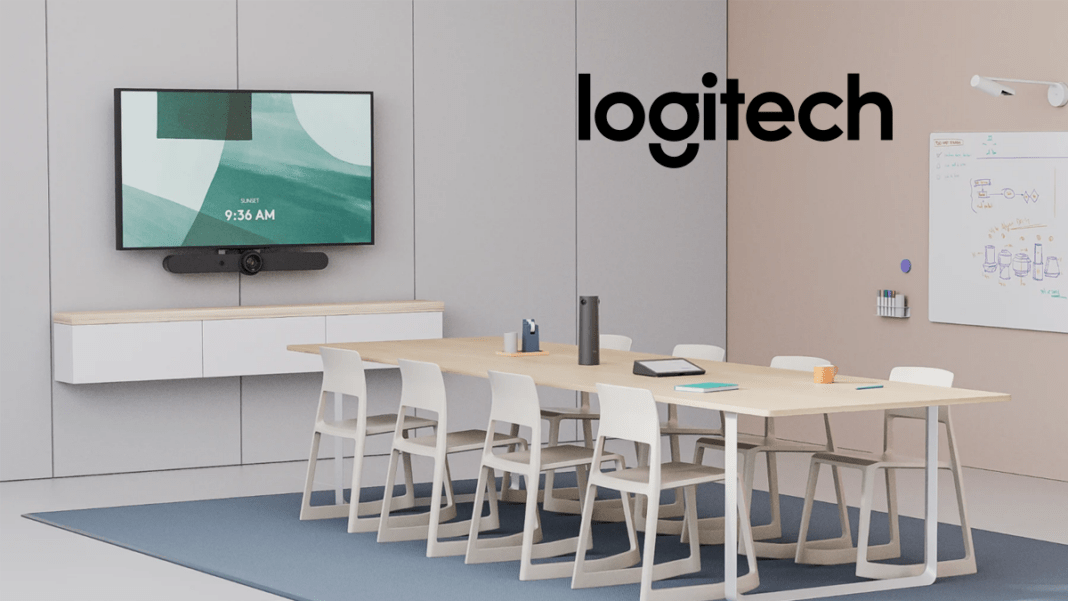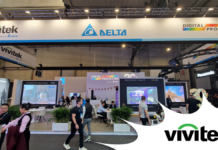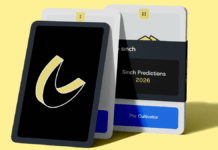Logitech has announced that all its video collaboration devices running on the CollabOS operating system will now be made with next-life plastics, helping to lower the carbon footprint of each product. The move supports enterprise customers’ sustainability objectives without affecting the quality or price of the products.
The decision is part of Logitech’s Design for Sustainability (DfS) principles, which aim to utilise circular materials and reduce negative environmental impacts. With 65% of IT professionals viewing environmental responsibility as a critical objective, Logitech’s efforts position the company as a leader in sustainable technology.
- Logitech has announced that all video collaboration devices running on the CollabOS operating system will now be manufactured with next-life plastics, helping enterprise customers meet their sustainability goals.
- The company is refreshing existing products and designing new ones with recycled plastic and other lower carbon materials, without increasing prices or compromising quality.
- Logitech is offering to openly share its Design for Sustainability (DfS) principles and knowledge with other organisations in the consumer technology industry interested in increasing their sustainability efforts.
Logitech Leads the Way in Sustainable Technology
In a ground-breaking move, Logitech has announced a significant shift towards sustainability in its video collaboration devices. The tech giant is now manufacturing all devices operating on their CollabOS system with next-life plastics. This includes their popular products such as Rally Bar, Rally Bar Mini, Tap IP, Tap Scheduler, and Scribe.
Lowering Carbon Impact
The use of these recycled materials significantly reduces the carbon footprint of each product. In turn, this supports and even elevates, the environmental objectives of enterprise customers. The move is a clear demonstration of Logitech’s commitment to assisting other companies in navigating their sustainability challenges.
Logitech’s Chief Operating Officer, Prakash Arunkundrum, voiced the company’s commitment to sustainability:
“By transitioning our portfolio of conference room devices to a lower product carbon footprint, we are helping other companies navigate their sustainability challenges,” said Prakash Arunkundrum. “We’re not only designing and manufacturing new products with recycled plastic and other lower-carbon materials but refreshing existing products to provide IT leaders with a new way to evaluate their workplace technology investment in conference room systems – one that includes people and planet. We do this without increasing prices or compromising the highest quality and performance companies expect from Logitech.”
A Growing Trend
The drive to reduce environmental impact is rapidly becoming a business imperative. A recent survey by analyst firm Frost & Sullivan revealed that 65% of IT professionals see becoming a leader in environmental, social, governance and sustainability practices as a critical or very important business objective in the coming year.
Design for Sustainability
Design for Sustainability (DfS) principles have been applied across Logitech’s video collaboration portfolio. This means customers can outfit entire conference rooms, including Microsoft Teams Rooms and Zoom Rooms, with technology designed with sustainability in mind. Logitech’s DfS principles focus on using circular materials that can be recovered from the waste stream and given a second life, including post-consumer recycled plastics (PCR) that Logitech refers to as “next-life plastics.”
Transparency and Accountability
As part of their commitment to transparency and accountability, Logitech plans to display a product carbon footprint for every product in its portfolio by 2025. The company also annually reports on its progress towards its Climate Action goals in the Impact Report.
Final Thoughts
Logitech’s move to use next-life plastics in the production of its devices is a significant step towards more sustainable technology. It’s not just a win for the environment, but also for businesses seeking to meet their own sustainability goals. Through their commitment to transparency and accountability, Logitech is setting the bar high for other tech companies.
By openly sharing their DfS principles and knowledge, they are encouraging and enabling others in the industry to follow suit. This is more than just good business; it’s a necessary response to the environmental challenges of our time.
FAQ
Q: What is Logitech announcing regarding its video collaboration devices?
A: Logitech is announcing that all video collaboration devices running on the CollabOS operating system will now be manufactured with next-life plastics, reducing their carbon impact and helping enterprise customers support their sustainability objectives.
Q: Which existing products are being refreshed with lower carbon materials?
A: The existing products being refreshed with lower carbon materials include Rally Bar, Rally Bar Mini, Tap IP, Tap Scheduler, and Scribe.
Q: How does Logitech’s transition to lower product carbon footprint benefit other companies?
A: By transitioning its portfolio of conference room devices to a lower product carbon footprint, Logitech helps other companies navigate their sustainability challenges and better manage their carbon footprint.
Q: How does Logitech ensure the quality and performance of its products while using lower carbon materials?
A: Logitech designs and manufactures new products with recycled plastic and other lower carbon materials, as well as refreshes existing products, without compromising the highest quality and performance that companies expect from Logitech.
Q: Why is becoming a leader in environmental and sustainability practices important for businesses?
A: According to a recent survey of IT professionals, 65% believe that becoming a leader in environmental, social, governance, and sustainability practices is a critical or very important business objective in the coming year.
Q: How does Logitech apply Design for Sustainability (DfS) principles to its video collaboration portfolio?
A: Logitech applies DfS principles to its video collaboration portfolio by using circular materials, including post-consumer recycled plastics (PCR) that Logitech calls “next life plastics,” and designing technology with sustainability in mind for outfitting entire conference rooms.
Q: What are some sustainable features of Logitech’s video conferencing products?
A: Logitech’s video conferencing products feature low carbon aluminum made with renewable energy, packaging from FSC-certified forests and other controlled sources, 100% recycled fabrics in the Rally Bar family, the option to collect and recycle old video conferencing equipment, and power saving modes to reduce carbon impact.
Q: How is Logitech opening access for greater impact and industry-wide progress?
A: Logitech is offering to openly share its DfS principles, tools, and knowledge of incorporating sustainable materials in the manufacturing process with any organizations in the consumer technology industry interested in increasing their sustainability efforts.
Q: How does Logitech ensure transparency and accountability in its sustainability efforts?
A: Logitech provides transparency through key performance indicators, reporting, and third-party certifications. The company is on track to achieve its 2025 target of having a product carbon footprint for every product in its portfolio and reports on its progress in the annual Impact Report.
Q: Where can I find more information about Logitech’s business products made with Next Life Plastic and the collect-and-recycle program?
A: You can find more information about Logitech’s business products made with Next Life Plastic and the collect-and-recycle program on Logitech’s website or by contacting [email protected].










